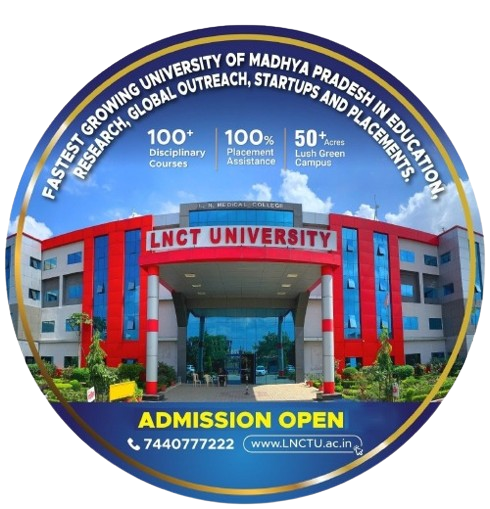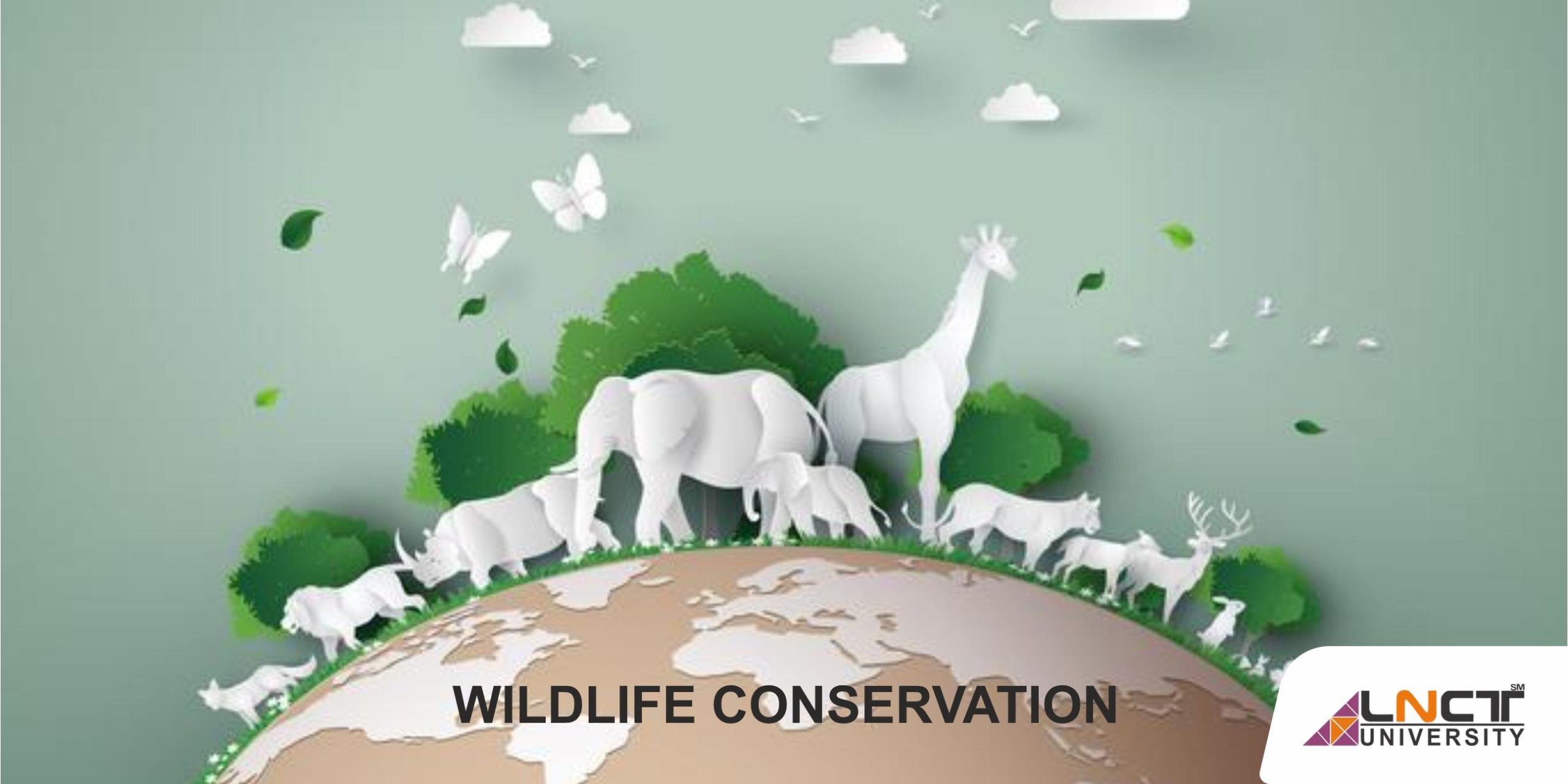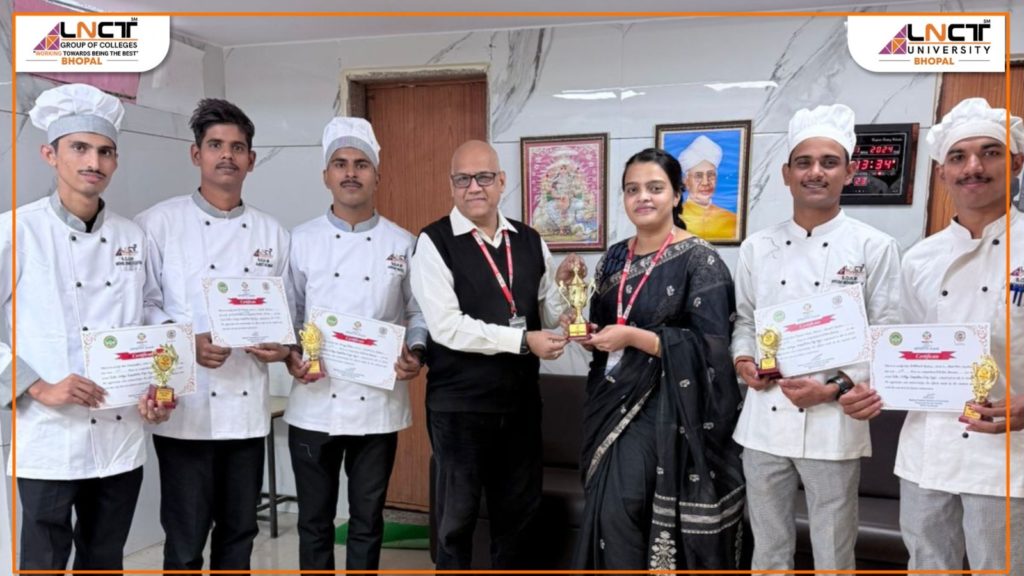What is a Biology BSc? This Bachelor of Science degree provides students with a foundation in botany, zoology, and ecology, as well as molecular and cell biology and microbiology. Students participate in classes and labs, gaining essential information about organisms. A BSc can be used as a prerequisite for graduate work in the biological sciences or as a terminal degree for research and laboratory work.
Many students choose to major in biology in order to get a deep understanding of cells, organisms, and their habitats, as well as laboratory experience. This knowledge can subsequently be transferred to graduate courses in order to pursue employment in the health sciences and experimental research.
Students will build on their knowledge base as they progress through their degree and begin to focus their studies with courses like organismal and cell biology, genetics, and chemistry, as well as their accompanying laboratory work. Students will select a speciality and customise their final coursework in fields like field botany or microbiology to this concentration, gaining knowledge that will help them stand out in graduate school applications or fieldwork.
The time it takes to earn this degree will fluctuate depending on the criteria of specific colleges, and as a result, the cost will differ as well. Prospective students should contact each institution to acquire an estimate of how much time and money it will take to complete the degree.
Students interested in pursuing graduate studies in biology will benefit from the information and laboratory experience gained, which will enable them to pursue professions in education, scientific research, laboratory work, and government roles. Students who receive this degree are well equipped for jobs in medicine, since it gives them the essential background to apply to medical, dentistry, and veterinary schools as well as a road to graduate school.
Prospective students can search our comprehensive database of schools to select a school where they can pursue a degree. The data on each institution can then be utilised to compare course requirements, settings, and overall cost to the needs and career aspirations of each individual student. Fill out the lead form below to contact the admission office of the institution of your choosing directly about your programme.
Top Trending Jobs after B. Sc. Biology Students- Full Time and Part Time
There are numerous work opportunities for students with a B.Sc. in Biology; all you need to know is which domain you belong in. Before we go into more professions after B.Sc. Biology, let me clarify what B.Sc. Biology entails. programme of study in biology Biology is a three-year bachelor’s degree programme. During these years, one might study a wide range of subjects. The majority of the curriculum focuses on biological aspects of life. Zoology, Molecular Biology, Ecology, Botany, Microbiology, and Genetics are among the topics covered.
There are numerous fields offered to an undergraduate, and recent advances in biology have multiplied the number of options.
Because every biology student is different in terms of abilities, interests, talent, and values. It becomes increasingly difficult to pinpoint your area of interest.
Biology Technician
It is mostly a full-time position. Medical laboratories, testing laboratories, and biotechnology research institutes all employ them.
They are in charge of a number of tasks, including:
Experimenting and conducting research
Ensure that laboratory equipment is in good working order and troubleshoot any problems that arise.
interpreting outcomes and analysing experimental data
Collection and evaluation of the specimens
According to the United States Department of State, Biological technologists are expected to expand 7% between 2018 and 2028, faster than the average for all occupations, according to the Bureau of Labor Statistics. The demand for these individuals is projected to rise as biotechnology and medical research continue to grow.
A Biology Technician/Laboratory Assistant’s monthly compensation might range from $9000 to $25,000.
To be considered for this position, you must be a B.Sc. undergraduate. Biology. As a result, after completing a B.Sc. in Biology, it becomes an appealing full-time employment.
Molecular Biologist
Working as a molecular biologist will be perfect for you if you enjoy cell physiology, physics, genetics, and chemistry.
Molecular biologists develop new approaches in order to find solutions to problems that already exist. When working with large machinery, they need deductive reasoning and critical thinking.
They also work to identify cures for diseases by analysing DNA to research gene growth in order to figure out what causes a sickness or why a cell is resistant to it.
Government agencies, commercial enterprises, and institutions all have job openings. They are capable of performing a variety of research, consulting, and tutoring jobs. Everyone has grasped the importance of a molecular biologist’s function at the time of COVID-19, which opens the doors to wonderful careers and professions after completing a B.Sc.Biology.
According to Payscale, an entry-level Molecular Biologist with less than one year of experience may expect to earn a total compensation of $300,000 per year (including tips, bonuses, and overtime pay), which can rise to $900,000 with relevant expertise.
Ecologist
Human civilization’s interaction with the natural environment has changed as it has progressed. An ecologist is in charge of doing a thorough investigation into this impact.
They primarily conduct tests and write reports to examine how different species interact with their surroundings. To become an Ecologist, one must have remarkable observational and analytical skills, as well as a basic understanding of environmental law.
Working for a government agency or a non-profit organisation after earning a B.Sc. Biology degree is an excellent way to give back to society.
According to Income Expert, the average base salary for an ecologist is 4,19,427 (INR) per year.
This is one of the greatest careers for students who have completed their B.Sc. in biology.
Botanist
Working as a Botanist is for you if you have a good understanding of plant life, processes, traits, and environmental problems.
The following are the responsibilities of a botanist:
Conduct research and in-depth studies on various plant species; observe and analyse tests; and encourage desirable qualities via the use of breeding techniques such as horticulture.
Botanist jobs are available in both government (wildlife sanctuaries and national parks) and private institutions for B.Sc. Biology graduates ( botanical gardens and research labs). Experts are essential for scientific research to progress.
A botanist’s salary starts at roughly 2 lacs per year, but with enough expertise, they can make up to 8-9 lacs per year.
Agricultural Adviser
After getting a B.Sc. Biology degree, one can work as a specialist in the field of farming technology.
An Agricultural Consultant’s job is to give their clients commercial, financial, and technical advice. The majority of the clientele are farming cooperatives, government entities, and people that require and respect specialist expertise.
Their responsibilities include conducting field research and land evaluations, as well as writing reports and advertising. Because the work description is dependent on the needs of specific clients, it is extremely adaptable. As a result, it is one of the greatest occupations available after completing a B.Sc. in Biology.
According to Payscale, the average salary for industry in India: Agriculture is 508,737 per year.
Tutoring over the internet
One can begin instructing online after completing a B.Sc. ( Biology) degree. Many pupils are in desperate need of tutoring and subject-specific assistance.
Career in Genetics
If your favourite subject is B.Sc. ( Biology ) was Genetics and you are fascinated with gene mutations, heredity, and activation/deactivation, this is the course for you.
Then becoming a geneticist is the profession for you!
Study risk and mutations by analysing patients’ DNA; counsel patients with a family history of gene mutations; review literature and conduct tests, and so on are all part of the job description.
The majority of geneticists work as research employees in universities, government agencies, and hospitals.
According to Sarvgyan, a geneticist’s starting salary in India ranges from Rs. 20000 to Rs. 25000. Students with a bachelor’s degree in genetics can expect to earn between Rs. 3.5 lakh and Rs. 5 lakh per year.
Conservationist of wildlife
To work as a full-time conservationist, most people need a bachelor’s degree in biology. It’s a fantastic chance for environmentally minded people.
A wildlife conservationist looks after and maintains various natural areas, such as grasslands, to ensure the protection of the species that live there.
They also research soil and water quality, as well as educating the public about species conservation in those areas. They also volunteer on a part-time basis.
They usually work for National Parks and Wildlife Refuges, as well as pro bono work for impoverished areas with limited resources.
According to Indeed, based on pay estimates from The Wildlife Institute of India, the average monthly wage is 29,638.
Florist
Florists not only sell and arrange flowers, but they also manage inventories, cater weddings, and grow businesses.
A professional botanist can begin their work with adequate understanding of flowers or, preferable, a diploma combined with a B.Sc. in Biology.
They might work on their own or collaborate with wedding and event planning companies. The hotel industry is also a key source of full-time florists. You can also work as a freelancer on other projects.
According to the Compensation Expert, the average salary for an entry-level florist (with 1-3 years of experience) is $261,789. A senior level florist (8+ years of experience), on the other hand, earns an average income of $430,083.
Developer of Biology Content
The sector has seen an increase in the need for professionals to provide content for their websites. Tutoring over the internet has grown in popularity.
Many platforms require professionals with a degree and experience to curate courses on their platforms in order to meet the needs of students. In the discipline of biology, there is a lot of demand.
Working as a content creator is perfect for you if you have strong subject knowledge as a B.Sc. Biology student, effective communication and management skills, and interpersonal skills.
B.Sc. Biology Eligibility Criteria
Aspirants must complete class 10+2 or pass tests from any recognised school or board to be admitted to the B.Sc Biology programme. Require a minimum of 50% aggregate score to qualify for the examination criterion. Aspirants must be between the ages of 17 and 25 years old to be considered for admission.
How Do I Get a B.Sc. Biology Admission?
Admission to the BSc Biology programme might be based on merit or the results of an entrance exam. To make the final list of entrance tests, aspirants must achieve the aim in their entrance exams. The standard steps for a B.Sc Biology degree are listed below.
What is the procedure for applying?
You can apply for admission online through university official website, allowing applicants to apply from anywhere in the country without danger. For applicants who prefer to apply to the campus, manual admission techniques are also accessible.
Process of Selection
After being chosen on the basis of merit a final round of group discussion or personal interview will take place before admission is confirmed.
Why Should You Pursue a B.Sc. in Biology?
[B] Bachelor of Science .Sc] In research and development (R & R&D), waste management, clinical research, pharmaceuticals, and chemical sectors, biology provides a sufficient number of chances. To respond to the question “why B.Sc Biology?” In brief, below are a few questions that have been broken down.
What is the purpose of a B.Sc. in Biology?
The Bachelor of Science in Biology (BSc Biology) is a three-year undergraduate programme that focuses on scientific principles and other scientific areas such as molecular biology, genetics, ecology, microbiology, zoology, and botany. Anatomy, biophysics, cell and molecular biology, ecology and evolution, and other subjects are significant in B.Sc Biology, which covers a wide range of biological features of living beings.
Biology content developer, horticulturist, biological technician, and botanist are among the jobs available to graduates of the B.Sc Biology programme. The course provides candidates with enhanced knowledge and problem-solving abilities in experimental ideas, with a focus on training and learning skills in preparation for future surgery or experimentation.
Why is a B.Sc. in Biology a Good Choice for a Career?
Demand: Medical experts have been in demand since the dawn of the human era on planet Earth, as far back as we can remember, and they continue to grow in demand day by day. Because of the high demand for biologists, B.Sc Biology has risen to the top of the profession list for those looking to contribute to or support the humanities.
Good Compensation and Job Growth: According to payscale, the scope and salary of a B.Sc Biology degree in India are adequate. Normal biologists receive INR 30 LPA, while high-end biologists receive INR 45 – 60 LPA. Depending entirely on the employee’s experience and job skills.
Tips for B.Sc Biology Exam Preparation
The following are preparation recommendations provided by an expert for applicants studying for the B.Sc Biology exam:
Know the Syllabus: Knowing the syllabus ahead of time can help you concentrate on your studies.
Make a Strategy: Aspirants must adhere to a strict schedule. There would be no room for error when it came to passing the exams.
Strengthen Your Foundations: This course focuses on science subjects in B.Sc biology, which is unique among other courses. English, biology, physics, and chemistry from a 12th-grade textbook are required.
Higher Education’s Scope
Biotechnology, Botany, Zoology, Biochemistry, Environmental science, genetics, Molecular Biology, Food Science, and other BSc biology subjects provide a lot of potential for further education. The following are some of the more advanced aspects of a B.Sc. Biology education:
MPhil Phd M.Sc Biology Salary
B.Sc Biology graduates can earn between INR 2.4 and INR 7.2 LPA, according to Payscale. In India, the value of a pay is entirely determined by the skill set and job experience of the individual. According to the Times of India, B.Sc Biology graduates can expect to earn between INR 3 and 8 LPA. nTaking care of Zoology and Botany’s roles.
Semester Wise B.Sc Biology Syllabus
Aspirants study a variety of science disciplines throughout the course of a three-year term. Subjects in B.Sc Biology, on the other hand, deal with theory and practical subjects chosen for candidates to study during this time.
| Semester I | Semester II |
| Chemistry Theory (Theory) | Biophysics (Theory) |
| Light & Life (Theory) | Biodiversity (Theory) |
| General Elective I (Theory) | General Elective II (Theory) |
| Chemistry (Practical) | Biophysics (Practical) |
| Light & Life (Practical) | Biodiversity (practical) |
| General Elective I (Practical) | General Elective II (Practical) |
| Semester III | Semester IV |
| Protein & Enzymes (Theory) | System Physiology (Theory) |
| Cell Biology (Theory) | Molecule Biology (Theory) |
| Ecology (Theory) | Metabolism & Integrations (Theory) |
| Medical Botany | Public Health & Management |
| Medical Diagnostics | Recombinant DNA Technology |
| Protein & Enzymes (Practical) | System Physiology (Practical) |
| Cell Biology (Practical) | Molecule Biology (Practical) |
| Ecology (Practical) | Metabolism & Integration (Practical) |
| Bio-fertilizers | Biochemical Techniques |
| Semester V | Semester VI |
| Growth & reproduction (Theory) | Animal Behaviour & Chrono-Biology |
| Genetics (Theory) | Endocrinology (Theory) |
| Natural Resource Management (Theory) | Biomaterials (Theory) |
| Analytical Techniques in Plant Science (Theory) | Microbiology (theory) |
| Stress Biology (Theory) | Plant Biochemistry (Theory) |
| Growth & Reproduction (Practical) | Animal Behaviour & Chrono-Biology |
| Genetics (Practical) | Endocrinology (Practical) |
| Natural Resource Management (Practical) | Biomaterials (Practical) |
| Analytical techniques In Plant Science (Practical) | Microbiology (Practical) |
| Stress Biology (Practical) | Plant Biochemistry (Practical) |
The Qualities That Make You a Great Biologist
The patience and curiosity to turn the world around are the most prevalent attributes of scientists. Their enthusiasm propels them forward to the next stage of the project and experiments.
The following are some of the capabilities that B.Sc Biology applicants would need to improve their skills:
Biology knowledge is required.
Skills in Analytical Thinking
Ability to Work Well Verbal Communication Skills Excellent Investigative Skills
Quantitative skills, research
Ability to Analyze
Communication Capabilities
Read About Our More Courses:
M. Pharm (Master in Pharmacy) – A Complete Guide
Electro Homeopathy: Course, Career & Job Prospects
Diploma in Health & Sanitary Inspection
Diploma in Acupuncture – A Step by Step Guidance














